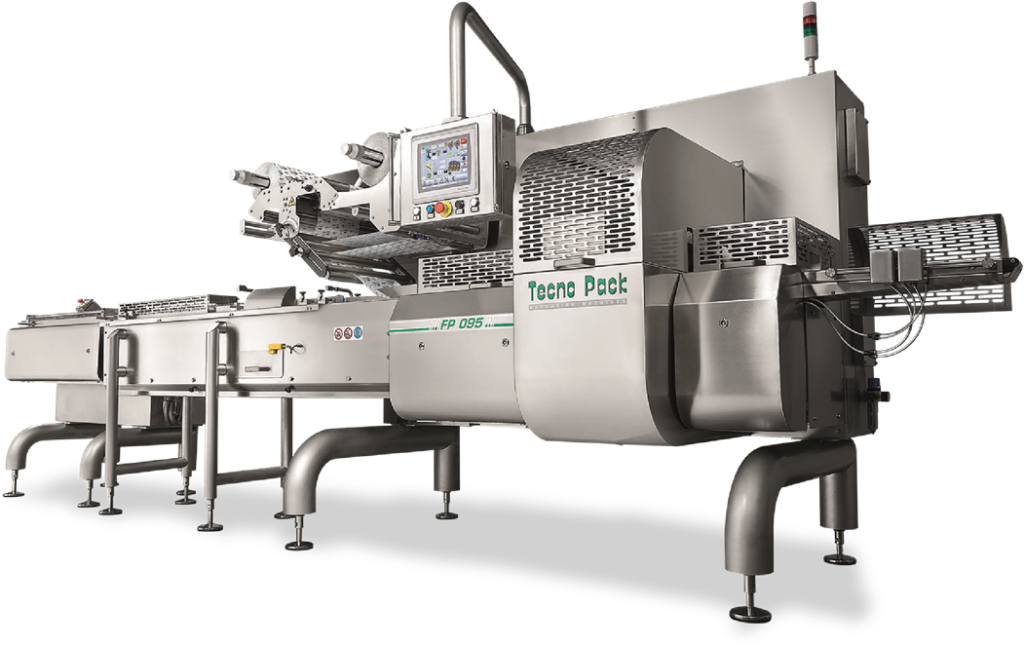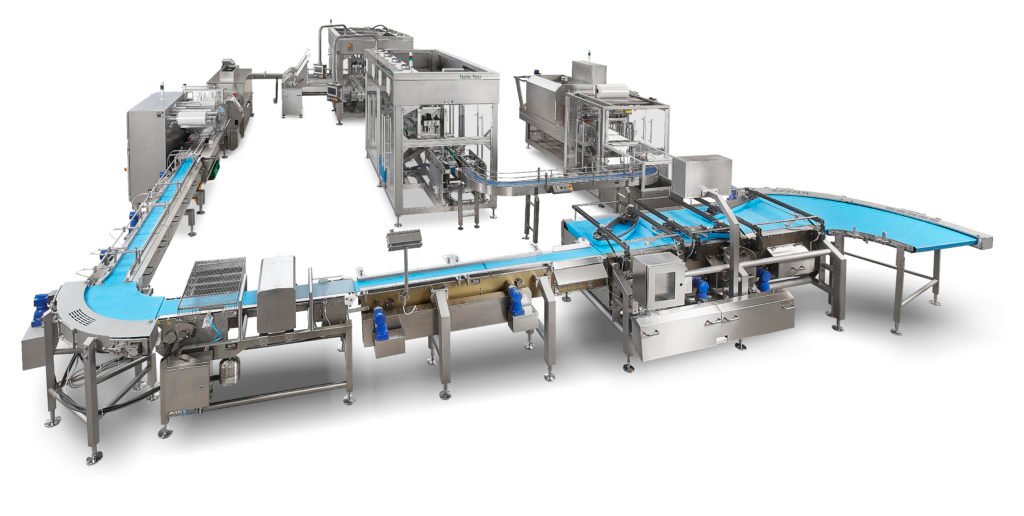Over three decades have passed since the early 1980s, when, in a small building on the outskirts of Schio, two enthusiastic and passionate technicians began tinkering with several used packaging machines with the intention of getting them back into working order.
This type of activity was known as “revision”, a term that has become extinct in this world of “disposable” products.
It was through the continuous process of disassembling, replacing, modifying, and testing these ageing machines that the two ultimately decided to develop the new and modern flow pack packaging machines. In 1985, the first packaging machines from the newly established Tecno Pack company were introduced on the market and immediately received a favourable reception from clients.


Thus began the company’s long journey, a company whose priority is to respond in a timely and professional manner to the increasingly stringent demands of the market, courageously and determinedly embarking on the challenging path of automatic packaging systems.
These were years of hard work, sacrifice, and ongoing research, as well as of achievements and growth.
Meanwhile, Tecno Pack moved to a new location, in the Schio industrial area, which was better able to handle the company’s growing and changing logistical and production needs.
In 2011, operations moved to a new facility occupying over 6,000 square meters, still located in the traditionally industrious town of Schio, since the second half of the 19th century nicknamed “the Little Manchester of Italy”.


Machine after machine, system after system, the story continued with the inevitable intertwining of professional and personal events that never undermined the company’s corporate ideological continuity, which was supported through the years by a constant investment in and commitment to research and innovation.
This generated the success which allowed Tecno Pack, during these years of continuous growth and development, to purchase and revive three companies and see them flourish: General System Pack, IFP Packaging, and Euroimpianti.
Thanks to their global technological portfolio, the group of Schlio companies is now recognised as a world leader in the packaging industry, providing a global solution that covers everything from product manufacturing to packaging, at every stage. Their automated solutions, tailored to each individual client company, integrate primary, secondary, and tertiary packaging, as well as palletizing.

Today, the world of small and medium-sized industry that relies on the Tecno Pack group can benefit from the experience and technology that the company has developed over decades with all of the major global food groups which, by renewing their trust each day, continue to fuel ongoing research and development.
You will find the Tecno Pack team at the INTERPACK 2023 trade show in Dusseldorf from 4 to 10 May, 2023 HALL 05,STAND F22

